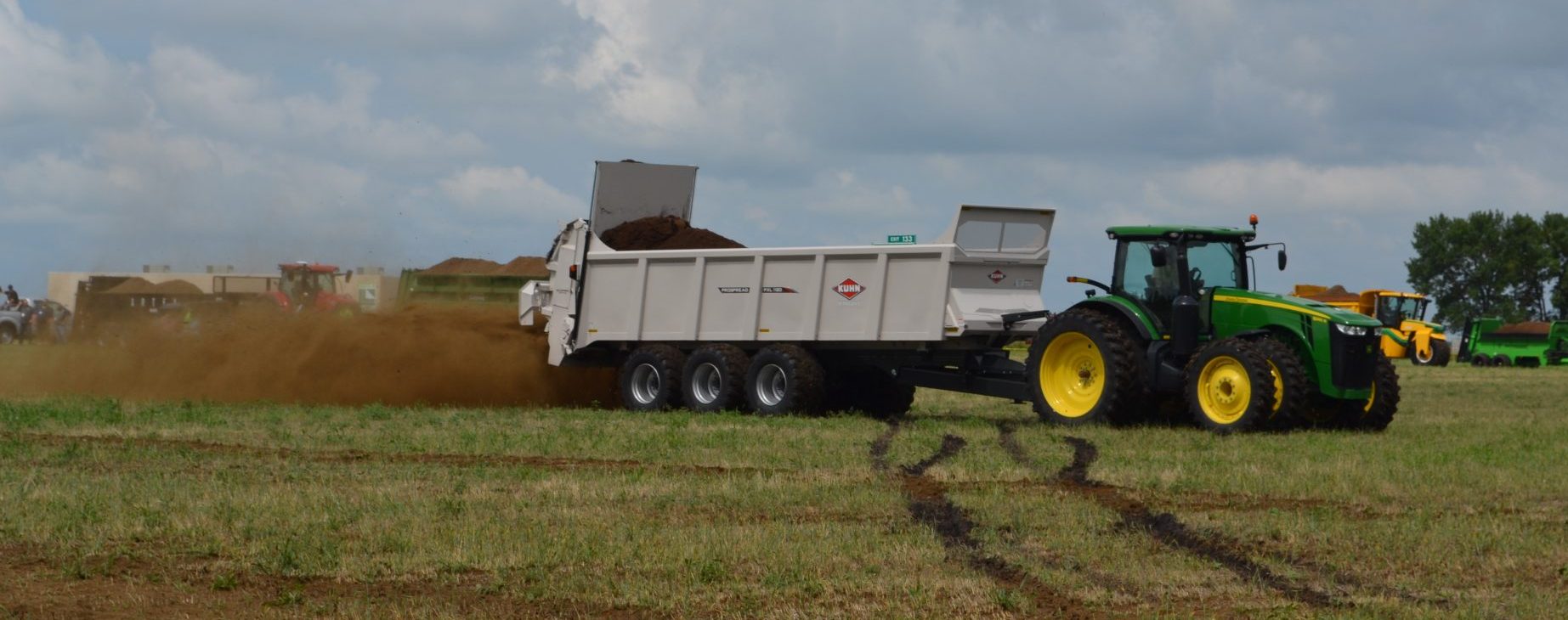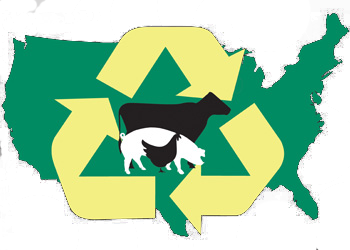Purpose
While both raw and composted manure benefit soil health and crop production, there are benefits to creating and land-applying composted manure over raw manure. Product uniformity, volume, weed seed, pathogen and parasite reduction and nutrient stability are just a few of the benefits. However, composting manure in Minnesota and North Dakota have yet to gain popularity.
A group of compost producers, who ultimately became our producer cooperators and partnered with us for workshops, were consulted on the reason composting manure is not more common. One said, “It is lack of understanding and time management that holds most other farmers back from composting manure; they do not know how much composting can help their operation.” Another mentioned, “When I started researching composting for my farm, I took a three-day class in Illinois because there wasn’t anything available in North Dakota or Minnesota. Most farmers are not willing to travel that far. There is a need for composting education programs in the two-state area.”
What Did We Do?
NDSU Extension partnered with the University of Minnesota Extension with the original plan of holding four workshops in two years (two each in ND and MN). When implications from the COVID-19 pandemic ensued, we changed our plans to host an online workshop in 2020 and were able to continue with two in-person workshops in 2021.
The online workshop consisted of 13 videos that were sent to registrants 2 weeks before an online, live discussion was held in August 2020 with the presentation team as well as 3 producer cooperators. One of the videos consisted of on-farm interviews with each of our producer cooperators to show the registrants the ability to manage compost differently with similar results. The videos are still available and have been viewed collectively 1,845 times.
The in-person workshops were held in July and August of 2021. Each workshop covered the same material as the online workshop and all three producer cooperators attended each event. The producer cooperators were responsible for helping attendees with the compost diagnostics activity as well as answering questions during a panel discussion.
What Have We Learned?
Online Workshop
-
- 180 people registered for the online workshop and 50 joined the live discussion with presenters and producer cooperators
- 43 responded to the immediate follow-up survey where
- 76% thought the self-paced format was excellent
- 64% thought the amount of material was excellent
- 62% thought the topics covered were excellent
- 15 months after the online workshop, 21 people participated in a follow-up survey and as a result of the workshop, 58% reported they had altered their manure composting practices.
- When asked what manure composting change(s) they made, 58% reported they improved their operations adding,
- “I have more confidence in my ability to compost successfully and have a better understanding of the environmental impacts of composting.”
- “I no longer have to pay someone to haul away our waste”
- “Although not composting on a commercial level, I manage several community gardens where large volumes of biomass are accumulated. After learning additional techniques, my piles were hotter and decomposed more quickly. The key? More moisture!”
Moving the workshop online for the first year allowed us to fully engage our producer cooperators. The online workshop resulted in participant comments such as,
-
- “Well organized and executed. Appreciated that videos were individual by topic area, short, and focused. That allowed me to watch what was relevant and fit it into my day more easily.”
- “Really enjoyed the discussion and interaction between the three cooperators. Also appreciated having enough time to flesh out the information, i.e., didn’t try to squeeze it into one hour.”
Though an in-person meeting would have allowed more hands-on experience, the online version reached a broader audience with attendees from 31 states and 3 countries.
In-person Workshops
-
- 31 people attended the in-person workshops in ND and MN, of which 10 participated in a 4-month follow-up survey
- 67% of those who made changes as a result of the workshop stated they started composting manure
- 100% of those who did not make changes were either agency or university Extension/research personnel who reported the workshops impacted them, their work, and/or their relationship with their clients by:
- “Allowing me to be more educated about manure composting so that when producers inquire about composting I am able to give them accurate information.”
- “Using workshop information to inform clients of another manure handling method to consider; composting.”
- 31 people attended the in-person workshops in ND and MN, of which 10 participated in a 4-month follow-up survey
The workshops, both online and in-person, facilitated discussion and mutual learning among experienced and novice composters of livestock manure.
Future Plans
Questions about static composting were asked during both the online and in-person workshops. This practice is not common in North Dakota or Minnesota so there is certainly a future learning and workshop opportunity.
Authors
Mary A. Keena, Extension Specialist, North Dakota State University
Corresponding author email address
Additional authors
Chryseis Modderman, Extension Educator, University of Minnesota; Melissa L. Wilson, Assistant Professor and Extension Specialist, University of Minnesota; William J. Gale, Extension Agent, North Dakota State University
Additional Information
-
- Online Composting Workshop Videos YouTube playlist: https://youtube.com/playlist?list=PLnn8HanJ32l6uhwdS9m-G1z8Bq1U0aJzF
-
- Two compost-related publications for producers were created for use while at the compost rows:
-
-
- Manure Composting Quick Guide (NM2047)
- Common Manure Composting Problems and Their Solutions (NM2046)
-
Acknowledgements
This project was funded by North Central Sustainable Agriculture Research and Education (NC-SARE).
The authors are solely responsible for the content of these proceedings. The technical information does not necessarily reflect the official position of the sponsoring agencies or institutions represented by planning committee members, and inclusion and distribution herein does not constitute an endorsement of views expressed by the same. Printed materials included herein are not refereed publications. Citations should appear as follows. EXAMPLE: Authors. 2022. Title of presentation. Waste to Worth. Oregon, OH. April 18-22, 2022. URL of this page. Accessed on: today’s date.

